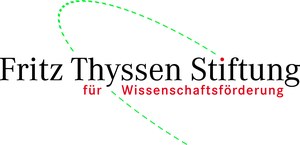“I desire nothing but ancient things” – Paul Petau (1568–1614): ancient culture, national identity and religious devotion
This project focuses on the figure of the jurist Paul Petau (1568–1614), a counselor of the Parliament of Paris, collector of books, antiquities and Medieval coins. His private library—one of the most important of the time—was partially sold to queen Christina of Sweden. Even more important is the catalog of his museum, printed in 1610, which represents a turning point in the history of antiquarian culture.![Paul Petau, Pa. P. In Fra[n]cor[vm] Cvria Consilia Antiqvariæ Svpellectilis Portivncvla, Parisivs, 1610 Buchseite mit einer seitengroßen Darstellung einer männlichen Skulptur, ägyptisierend](https://www.zikg.eu/forschung/projekte/images-projektbezogen/a-p-in-fra-n-cor-vm-cvria-consilia-antiqvariae-svpellectilis-portivncvla-parisivs-1610-title-page/@@images/3396bda4-e0de-4176-8670-f063de845e7e.jpeg) The book is made of two parts, the Antiquariae Supellectilis Portiuncula (prints of small objects) and the Veterum Nummorum Gnōrisma (prints of Roman and early Medieval coins); there’s no commentary, just captions and short notes on the illustrations. This work represents the first printed illustrated catalog of a private collection of antiquities.
The book is made of two parts, the Antiquariae Supellectilis Portiuncula (prints of small objects) and the Veterum Nummorum Gnōrisma (prints of Roman and early Medieval coins); there’s no commentary, just captions and short notes on the illustrations. This work represents the first printed illustrated catalog of a private collection of antiquities.
What are Petau’s motivations for collecting antiquities and publishing the catalog of his museum? To whom was it addressed? Is it only a matter of curiosity? And what is the source of his interest in Medieval coins, almost unprecedented in the culture of his time? The hypothesis proposed here is that studying the past for Petau meant going back to the origin of the unity between political and religious power. 1610 (listed as the year of publication) is not a mere chronological coincidence while the recurring phrase—Non nisi prisca peto—is, besides an erudite motto, more importantly a programmatic political statement.
Thanks to the generous funding from Thyssen Stiftung and the technical infrastructure of the Heidelberg University Library for sustainable data storage, citable publication, long-term archiving, and broad dissemination of the results, the project will provide a critical assessment of Paul Petau’s role in early 17th-century European culture while entailing two deliverables:
1. an online annotated critical edition of the first printed illustrated two-volume catalog of antiquities Portiuncula and Gnōrisma including:
- the digital facsimiles of the various catalog editions between 1610 and 1757
- the database-supported identification and in-depth indexing of the objects published there (antiquities and coins)
- an interactive and dynamically expandable commentary apparatus
2. an Open Access publication on life, work and impact of Petau in European culture including:
- the first biography of Paul Petau based on his status and effect within the Republic of Letters, taking into account his political activity, his sphere of action and his contacts
- the virtual reconstruction of his manuscripts and books collection through the transcription of the inventories (individual entries will eventually be linkable with the catalog entries of the libraries where the volumes are now)
- Petau’s role within the history of collecting and the tradition of antiquarian studies through the analysis of the data emerged from the online annotated edition
- the result of a study day
[Abbildung: Paul Petau, Pa. P. In Fra[n]cor[vm] Cvria Consilia Antiqvariæ Svpellectilis Portivncvla, Parisivs, 1610 | https://doi.org/10.11588/diglit.62115#0001]
Förderzeitraum / Projektdauer
September 2023 – August 2025 | Verlängert bis August 2026
Information und Kontakt
Dr. Cristina Ruggero: c.ruggero@zikg.eu
Dott.ssa Elena Vaiani: e.vaiani@zikg.eu
Förderer
Kooperationspartner
Team
- Prof. Dr. Ulrich Pfisterer - Projektleiter
- Dr. Cristina Ruggero - Berlin/München, Wissenschaftliche Mitarbeiterin
- Dott.ssa Elena Vaiani - Pisa/München, Wissenschaftliche Mitarbeiterin


